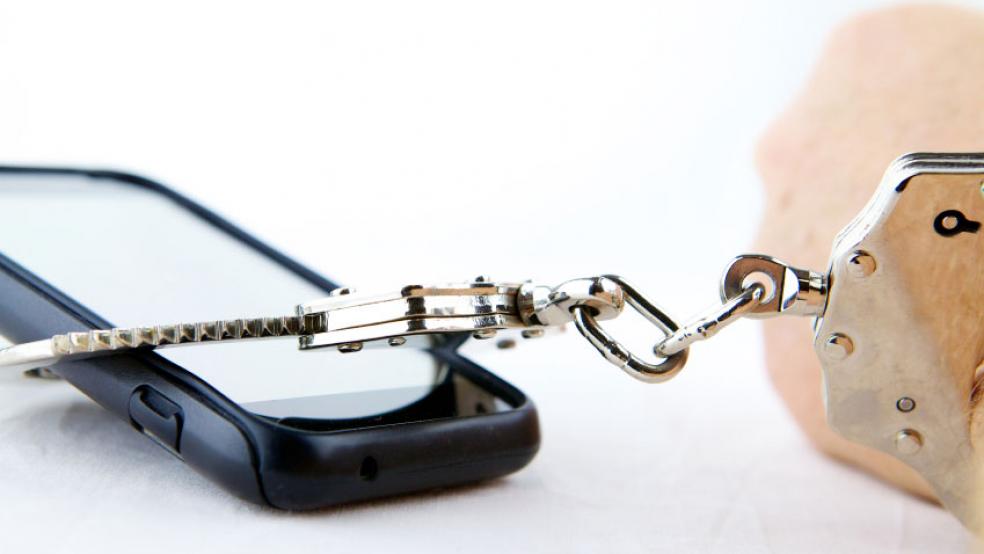Here’s a shocker for you: The Consumer Electronics Association announced last week that 64 percent of U.S. households now own a smartphone, surpassing for the first time the ownership rate for basic cell phones (51 percent). The shock may be that it’s taken this long to get to that level of smartphone penetration. Now that we’re there, though, the repercussions will be felt far and wide.
Take, for example, our legal system. The Supreme Court heard oral arguments last week in two cases that will set the tone for how police deal with smartphones — and perhaps other mobile computing devices — found on one's person in an arrest, or even when stopped for a moving violation.
Related: Another Reason to Think Twice About Your Smartphone
The cases are Riley v. California and United States v. Wurie. In the first case, police pulled David Riley over for expired plates, and used evidence found on his smartphone — photos and videos — to help convict him on charges of gun violence. A California state appeals court upheld that verdict. In the second case, a federal appeals court disallowed evidence found on a drug dealer's cellphone; in that case, the police extracted information from the phone's call log.
The two cases get to the heart of the Fourth Amendment, which protects citizens from "unreasonable searches and seizures." In particular, the law requires that a search warrant be issued before police can rifle through a person's home or other personal effects. That said, it has become common practice for police to search through items found on a person when making an arrest.
You Have the Right to Remain Private ... Maybe
“We’re living in a new world. Someone arrested for a minor crime has their whole life exposed on this little device,” Supreme Court Justice Anthony M. Kennedy said during oral arguments.
Smartphones don't just carry call logs, or even pictures and video. Most people who carry smartphones are also connected to the web in some form or another. Do the police have the right to conduct a warrantless search of your Facebook page, just because you were stopped for speeding? Can they access your bank account, too, just because you have an app ready to connect and log you in at the press of a thumb?
Overall, the court seemed divided, with justices like Antonin Scalia and John Roberts appearing to hold that everything seized in an arrest is fair game, while justices like Elena Kagan and Sonia Sotomayor took the tack that there's far too much private information available on today's smartphones to leave them open to general police searches.
Sotomayor also noted that, whichever way the court came down in these cases, their decisions would also apply to laptops and tablet computers.
Justice Samuel Alito came across as genuinely perplexed by the question of where modern devices like smartphones fit into the age-old world of policing: “Smartphones do present difficult problems. So how do we determine what the new expectation of privacy is now?”
That's up to the Supreme Court to decide, and a decision is expected in several months. In the meantime, it might be prudent for the growing number of U.S. smartphone users to start deciding exactly how much of their private lives they want to keep on these devices that have become so much more than telephones. Alternatively, they could just stay out of trouble.
Top Reads from The Fiscal Times:





